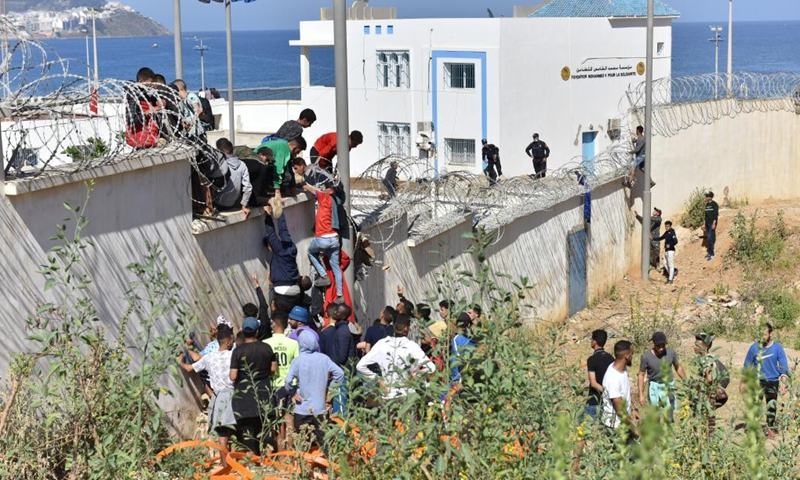About Civic Ethics
Written by Alicia Rando, TDN Cross-cultural Youth Exchange Fellow
New York, NY (June 2021) – Civic ethics have been shaped around five fundamental ethical principles: not to instrumentalize people (principle of not instrumentalization); empower them (principle of capabilities); take into account those affected by the rules when making decisions about them (dialogical principle); equitably distribute burdens and benefits, taking as a reference the ethical level reached by the corresponding society (principle of justice); and minimize damage in the case of non-human sentient beings and work for sustainable development (principle of responsibility for vulnerable beings).
As is easy to see, the first four are requirements of the ethical foundation of a modern society: the recognition of the dignity of human beings. Recognizing that a human being is worthy implies not exploiting or harming them, empowering them as much as possible, as long as this does not mean harming others, taking their autonomy seriously by promoting dialogues in which they can participate when it comes to decisions that affect them, and structure social institutions and organizations in such a way that they can participate in their benefits equitably, in a manner consistent with the ethical conscience of society. The fifth and last of the principles refers to the relationship of human beings with non-human nature, a relationship that cannot be one of predation and plunder, but of responsibility for those beings who, being valuable and vulnerable, must be protected.

Immigrants climb over the border fence to enter the Spanish enclave of Ceuta, in Fnideq, Morocco. Photo: Xinhua
The city of Ceuta, the Spanish borders, the external border of the European Union and above all, Spanish sovereignty were threatened by the invasion of some 10,000 people clearly used to pressure the Spanish Government.
A few days ago, a message spread through social networks in Morocco, reporting Cristiano Ronaldo’s participation in a football match in the Spanish city of Ceuta. Hundreds of children and young people, most of them minors, made their way to the access roads to the Spanish city along with thousands of other people, encouraged by the dissemination of messages of opening the borders.
It is not the first example nor, possibly, it will be the last, of instrumentalization of people with a clear political purpose. Morocco had already put it into practice in November 1975 with the so-called Green March in which some 50,000 people invaded the territory of Western Sahara, precisely the territory that has been, on this occasion, the trigger for the invasion and the reason for the political pressure.
What is especially significant is that, on this occasion, this instrumentalization has taken place taking advantage of the despair and impoverishment of many families and minors willing to risk their lives to opt for decent and better living conditions.
It is not the best example of a policy that should be put at the service of the common good, and more considering that respect for the supreme value of life and human dignity oblige the authorities and states not to use the legitimate aspirations of those families and people with political endings. Nothing justifies the use of the misery of so many people.
If these forms of pressure are used, it is because the dehumanizing effect of migration is known, and therefore used, on the people who lead them, who, in developed countries, are often seen as problems and not as people with disabilities, rights and duties and with the capacity to contribute with their talents to the society that receives them.
And here civic ethics comes into play, understood as the part of ethics, of reflection, which refers to our behaviour in a social community. It is the effort of human beings to think, justify and carry out the great project of just coexistence. It is based on Human Rights, which include the values that should guide our conduct. It is the instruction that has an objective of learning to live in community and in harmony.
In short, it is not legitimate to exploit people or harm them by violating their rights. It is not morally fair to use human beings for purposes other than their own good, be it economic, scientific or political, nor to supplant them when deciding what their good consists of.
Buzz
- 11/04/2022 Latino Impact Summit - TDN President/Founder Ariel Rojas attended this event at the United Nations... read more>>
- 10/27/2022 Latin Grammy Awards - TDN Artistic Ambassador Glenda del Monte Escalante is a nominee for the next edition of the Latin Grammys... read more>>
- 10/24/2022 Heritage Celebration - TDN President/Founder Ariel Rojas attend community event Quisqueya: A Celebration of Haitian and Dominican Heritage... read more>>
- 10/21/2022 TDN / UN Women - TDN President/Founder Ariel Rojas and TDN Youth Ambassador Alicia Rando meet with UN Women representative... read more>>
- 09/09/2022 Book of Condolence - Because of Queen Elizabeth's death, TDN President/Founder Ariel Rojas signs book of condolence... read more>>
